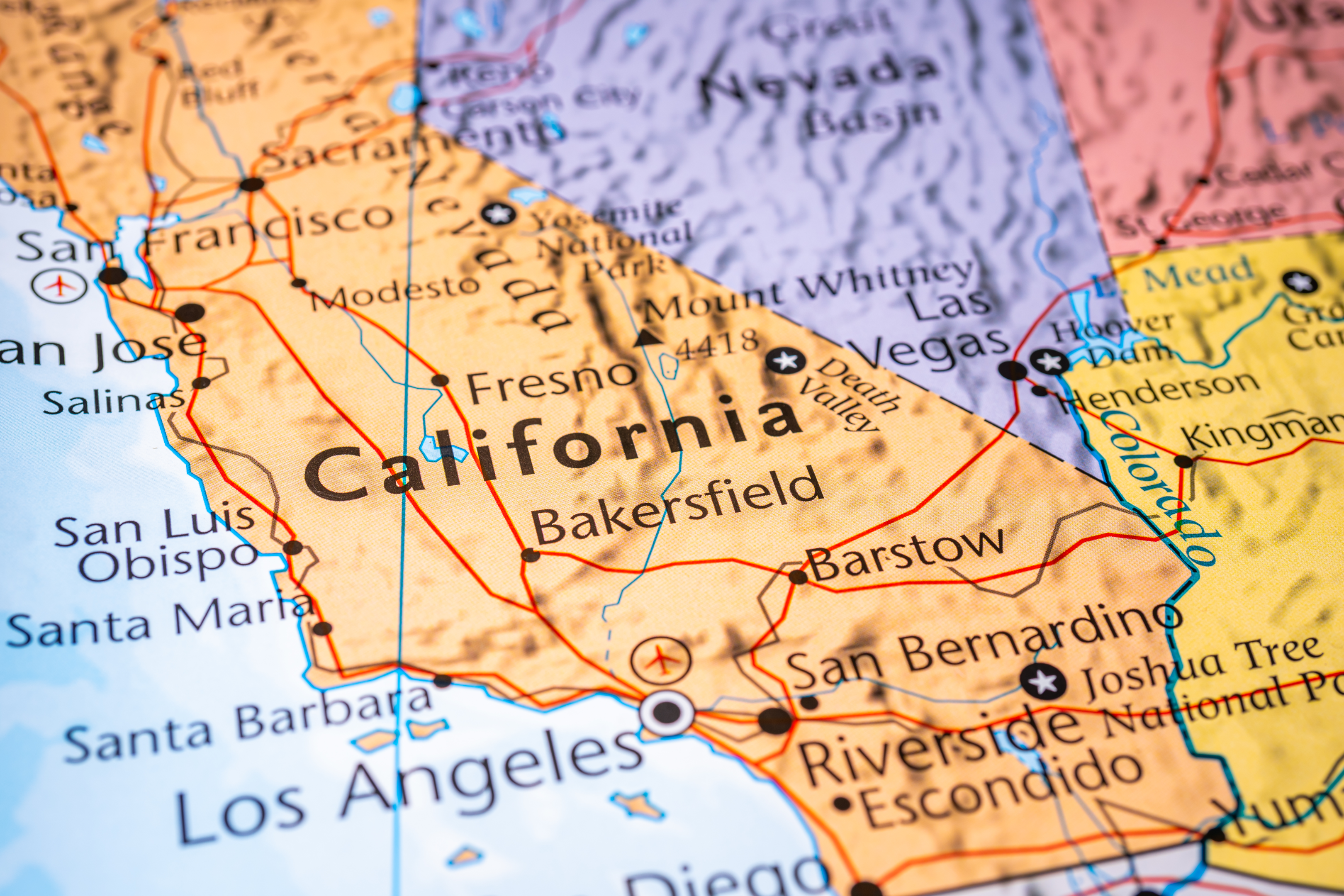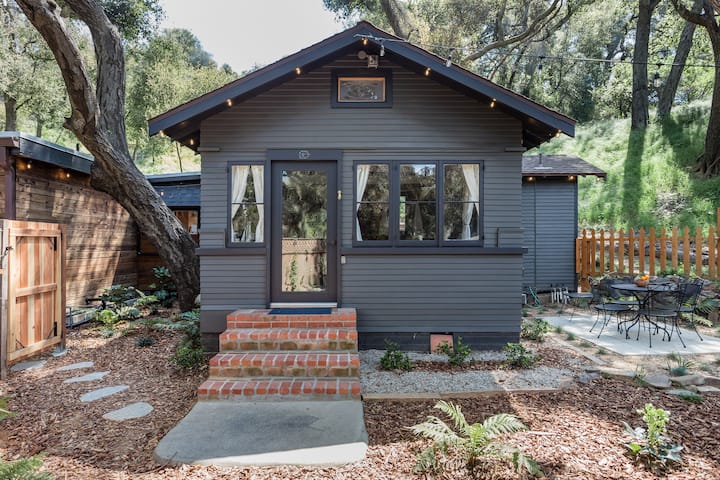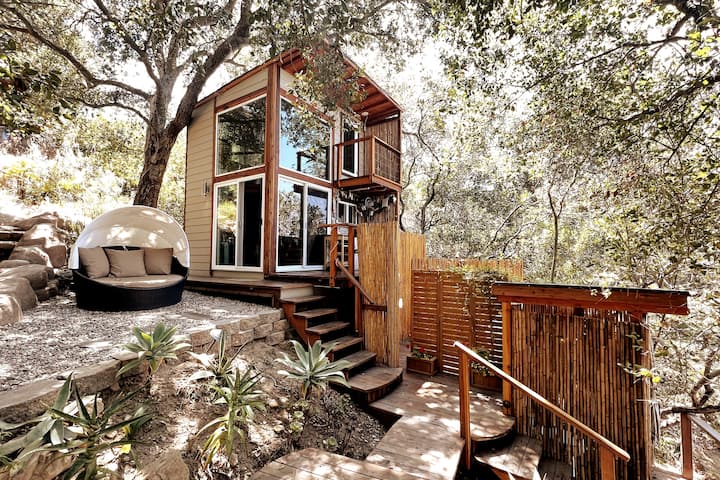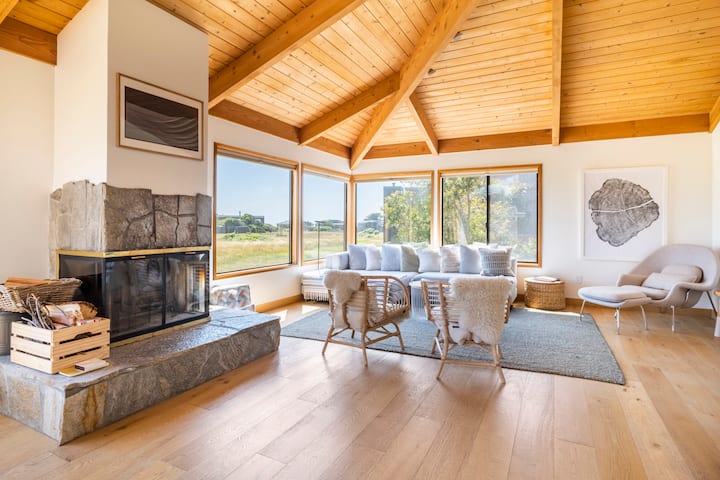Airbnb California: Your Essential Guide to Thriving in the Golden State's Rental Market

Welcome to the Golden State, where the sun is almost always shining, the beaches are world-renowned, and the Airbnb scene is absolutely bustling. If you’ve been to California, you’d know that it’s not just the gold rush that lures people here. Nowadays, it’s the rush for comfy beds in artsy lofts, cozy beachfront cottages, or secluded mountain cabins found on Airbnb. Indeed, if Airbnb listings were gold nuggets, California would be 1849 all over again!
But as we all know, even in the most golden of states, not everything that glitters is gold. Hosting an Airbnb in California is more than just snapping inviting photos of your sun-drenched patio or your stylishly decorated living room. It involves intricate knowledge of local laws, smart marketing strategies, and an understanding of guests’ expectations.
That’s where this guide comes in. This is your map to the sometimes winding, occasionally steep, but always exciting trail of running an Airbnb business in California. We’ll delve into the nitty-gritty details of state and city-specific regulations, share the secrets of successful listings, and guide you through tax laws faster than a California surfer catching a wave. Buckle up and get ready to ride the wave of knowledge right into the sun-soaked shores of success!

Understanding the Short-term Rental Scene in California
Airbnb has been on a meteoric rise since its inception in 2008, but it’s California, with its diverse natural beauty and vibrant cities, that’s become one of the prime landscapes for this digital boom. In recent years, the state has experienced remarkable growth in Airbnb listings, illustrating the increasing trend of travelers seeking unique, homey, and personalized accommodation experiences over traditional hotels.
The Golden State’s Unique Charm: A Catalyst for Airbnb’s Success
A critical factor in Airbnb’s Californian success story is the state’s unique charm and plethora of attractions. From the sun-kissed beaches of San Diego to the majestic peaks of Yosemite National Park, California offers a diverse range of experiences, each more enchanting than the last.
Take Joshua Tree National Park, for instance. This desert wonderland has seen a surge in Airbnb listings, providing a secluded, starry-skied getaway for those looking for an escape from the hustle and bustle of city life. Then there’s the shimmering expanse of the Pacific Ocean, where beachfront properties are in high demand, offering guests a slice of California’s unparalleled coastline right at their doorstep.
Then, there’s San Francisco, a cultural melting pot teeming with its iconic trams, vibrant neighborhoods, and, of course, the Golden Gate Bridge. The city’s Airbnb listings range from Victorian houses to trendy lofts in the heart of downtown, each offering a different taste of the city’s eclectic character.
Let’s not forget the wine country – the valleys of Napa and Sonoma. Here, Airbnb guests can find themselves staying in serene vineyard properties, enjoying the region’s world-class wines during the day, and relaxing in rustic, cozy accommodations come night.
All these varied landscapes and attraction points make California a veritable gold mine for Airbnb hosts. The opportunity to offer a unique stay, no matter if it’s a cabin nestled in the wilderness of Yosemite or a sleek apartment overlooking San Francisco’s skyline, is part of what makes Airbnb so popular in this golden state. And if you play your cards right, you could find your slice of the Airbnb success story right here in California.
Decoding California’s Airbnb Laws and Regulations
Navigating the legal landscape of Airbnb hosting in California can feel like steering a boat in the foggy San Francisco Bay. Yet, it’s crucial to have a solid understanding of the state-wide laws and regulations that govern the short-term rental business. Before setting sail, you’ll need to familiarize yourself with several key governing bodies and legal entities.
At the state level, the California Department of Consumer Affairs and the California Department of Real Estate oversee many aspects of the short-term rental industry. There are also several state-wide laws, such as the California Home-Sharing Act, that outline the necessary requirements and limitations for operating an Airbnb.
Additionally, local county and city ordinances may apply, which could include laws regarding zoning, noise, and health and safety standards. For instance, in many California cities, short-term rental hosts are required to register their property as a business, obtain a permit or a license, and pay transient occupancy taxes (TOT).
Last but not least, don’t forget the homeowners association (HOA) or condo board if your property is part of one. They often have their own sets of rules regarding short-term rentals, which you must respect.
The Importance of Understanding and Adhering to Laws and Regulations
Now, let’s talk about why understanding and following these laws and regulations is not just the right thing to do—it’s also good for business. Failure to comply can lead to hefty fines, legal troubles, and can even result in the suspension of your listing.
By adhering to laws, you ensure your Airbnb venture operates on the right side of the law, building trust and confidence with your guests. It demonstrates your professionalism and commitment to providing a safe, legal, and high-quality Airbnb experience. Plus, keeping up-to-date with the changing laws ensures you’re always ready to adapt and protect your Airbnb investment.
So, while it may seem like an overwhelming wave of legal jargon, understanding the laws and regulations around Airbnb hosting in California is a crucial step in your journey to success. Just remember, when in doubt, it’s always a good idea to seek legal advice. Your Airbnb venture is not just about creating a wonderful guest experience, but also about ensuring a sustainable and lawful business operation.
City-specific Airbnb Laws and Regulations
Navigating California’s Airbnb laws becomes even more intricate when we zoom into the city level. Let’s take a stroll through some of California’s major cities and uncover the layers of their specific Airbnb regulations.
Los Angeles
In Los Angeles, one of the most popular cities for Airbnb hosts, a city ordinance passed in 2019 allows short-term rentals only in one’s primary residence, not in a second home or an investment property. Hosts must register with the city and pay an annual fee. The “City of Angels” also caps the rental of primary residences at 120 days per year, although hosts can apply for an extension if they meet certain criteria.
San Diego
With its pristine beaches and world-class zoo, San Diego is another Airbnb hotspot. However, as of my knowledge cutoff in September 2021, the city had been grappling with short-term rental regulations for years. It’s therefore essential to check the most current laws here, as they are subject to frequent change.
Sacramento
In Sacramento, Airbnb hosts are required to obtain a Short-Term Vacation Rental Permit and a Business Operation Tax account. The city also imposes a Transient Occupancy Tax, which hosts must collect and remit.
Napa
Napa, the heart of California’s Wine Country, allows short-term rentals only in specific zoning districts and requires a vacation rental permit. There are also strict regulations regarding advertising, noise, and maximum occupancy to maintain the tranquility of the area.
Palm Springs
In Palm Springs, a popular desert resort city, hosts must acquire a Vacation Rental Certificate and adhere to regulations regarding noise, outdoor fires, and pool use. The city also requires appointing a local contact person who can address any issues that might arise during a guest’s stay.
As you can see, Airbnb regulations can vary significantly from city to city, each with its own set of rules and stipulations. These laws often evolve in response to local dynamics, including housing availability and community sentiment. It’s vital for hosts to stay updated and ensure they comply with all relevant regulations in their specific city. By doing so, they can avoid unexpected legal hiccups and focus on providing an exceptional guest experience.
Best Practices for Operating Airbnbs in California
Stepping into the Airbnb hosting world can feel like stepping into the surf of California’s Pacific coast – a balance of excitement, unpredictability, and a lot of fun. To help you ride these waves successfully, let’s go through some best practices for operating an Airbnb in California.
Complying with Laws and Regulations
The first rule of thumb – stay in the clear. Ensure you have all the necessary permits and licenses required by your local city or county. Keep them updated and ready for inspection. Make sure you’re familiar with the terms and conditions set by your homeowner’s association or condo board, if applicable.
Consider securing proper insurance coverage. A comprehensive short-term rental insurance policy can protect you from property damages, liability claims, and other potential issues that may arise from hosting. Remember, Airbnb’s Host Guarantee program is not a substitute for homeowners’ or renters’ insurance and may not cover everything.
Effective Property Management
Effective property management is key to becoming a successful Airbnb host. Keep your property clean, well-maintained, and ready for guests at all times. Hire a professional cleaning service between bookings, if necessary, to ensure your property meets the high standards guests expect from Airbnb accommodations.
Regular maintenance checks are essential. Address any issues immediately – whether it’s a leaky faucet, a broken appliance, or a squeaky door. A well-maintained property not only makes for happy guests but also saves you money on costly repairs down the line.
Managing Bookings, Cancellations, and Disputes
The rule of hospitality: the customer is always right (well, most of the time). Develop clear and fair booking and cancellation policies. Make sure your guests understand them before they confirm their booking. Airbnb’s platform offers several options for cancellation policies, ranging from flexible to super strict. Choose one that suits your hosting style and potential risks.
Handle disputes professionally and with an open mind. If issues arise, try to resolve them amicably and promptly. Airbnb’s Resolution Center is a helpful tool in mediating disputes and reaching a fair resolution.
Remember, being an Airbnb host is a mix of property management, customer service, and legal compliance. Master these, and you’re on your way to becoming a superstar host in the California Airbnb scene.
Examples of Successful Airbnb Listings in California

Crystal Cabin, Restored Vintage Lodge in Topanga State Park
The property is a cozy, rustic, remodeled cabin named the Crystal Cabin, located in Topanga State Park, just outside of LA. Its original features include stained glass windows and a decorative stone fireplace. The cabin was remodeled in 2019, giving it a modern look while maintaining its rustic charm.
The listing provides a vivid and enticing description of the property, highlighting its charm, history, and key features. It communicates that the cabin has been tastefully remodeled, blending the old (e.g., a stone fireplace, original stained-glass windows) with the new (e.g., a modern kitchen). The description also specifies the privacy of the space, noting that although there are other cabins on the property, each has its own private outdoor space. The cabin offers several unique features that can enhance a guest’s stay. These include a cozy reading nook, outdoor seating and a hammock under the giant oaks, a full kitchen with bar seating, and beautiful views of the Topanga hillside.
It’s clear that a combination of unique features, a great location, a responsive host, positive reviews, and a vivid, detailed description all contribute to making this a successful Airbnb listing.

ShangriLaLa Tiny House Mountaintop Getaway
The ShangriLaLa Airbnb property presents a unique blend of indoor and outdoor living, making it a serene, nature-centered retreat close to Los Angeles. The property is located in Topanga, tucked away among flowers and trees in a tranquil sanctuary garden on a private drive. It offers impressive canyon views.
The dwelling is thoughtfully designed to offer a luxury experience with an outdoor living space and tiny home charm. It’s referred to as a “treehouse,” featuring cedar wood walls, bamboo floors, floor-to-ceiling windows, and plush, cozy furnishings. The one bedroom with a queen sized bed not only makes for a romantic weekend, but just a great place to fall asleep.
This Airbnb listing’s success can be attributed to its unique and detailed description, unique features, positive reviews, transparency, and amenities. The host’s thoughtfulness and consideration in setting up the space and considering guests’ needs also contribute to its success.

Dope Artist Loft near Hollywood
This is not a traditional living space. The property has been converted from a flower shop to an artist’s habitat, emphasizing its unique character and making it one of the most unique vacation rentals in this list. It consists of one bedroom with a king size bed and caters to the interests of creative individuals and those looking for an unusual, artistic experience.
The property’s artistic ambiance extends beyond its functionality. According to the reviews, guests describe the place as a “trippy art museum” with “unique art & many Easter eggs.” This aspect seems to offer guests a sense of discovery and continuous engagement, enhancing the uniqueness of their stay.
Overall, the success of this Airbnb listing seems to lie in its distinct artistic appeal, community, and comprehensive amenities, coupled with a responsive and caring host. However, clearer instructions for unique features and a better parking solution could enhance its success even further.

Over 100 Joshua Trees Epic Desert Views + Hot Tub
This award-winning Desert Sage House, recognized as one of California’s top 33 Airbnb’s by Condé Nast Travel Magazine, is a design-driven oasis nestled in a 5-acre landscape adorned with over 100 Joshua Trees and stunning 360-degree mountain views. Just 20 minutes from Joshua Tree National Park and 15 minutes to Pioneer Town, its location provides a remote desert experience with convenience.
Out of the four bedrooms available, you could opt for a room with a queen sized bed or one with double beds. In total, it can comfortably host up to six guests. The private pool and hot tub make it just the place for a relaxing getaway or a large group stay.
The property features a stylish main cabin, a cozy casita, and a ceremony yurt, creating a perfect setting for yoga retreats and spiritual ceremonies. For relaxation and entertainment, you’ll find a day trailer, an extra-large cedar hot tub, a cowboy pool, an outdoor swing bed, an outdoor shower, and outdoor dining tables. Additionally, it offers a yoga deck for fitness and meditation enthusiasts.

Bright Modern Home | Ocean Side
The property is situated in a prime location at the north end of Sea Ranch, close to Gualala town with its stores and restaurants, the beach, recreational centers, golf course, and hiking trails. This is a significant advantage because convenience and accessibility are crucial factors for guests when selecting a rental property.
Some of the unique features that add to the property’s appeal include access to community pools, saunas, tennis/pickleball courts, hiking trails, and beach. The house’s smart features, such as the Nest thermostat and smart lock entry, enhance guests’ convenience, while eco-friendly amenities like organic mattresses align with sustainable living values.
The combination of well-thought-out amenities, a detailed and inviting description, positive guest experiences, and unique features contributes to this Airbnb listing’s success. The host’s attention to detail and commitment to providing a high-quality stay seems to resonate with guests, fostering positive reviews and likely leading to repeat bookings.
Navigating California’s Airbnb Tax Laws
Like catching a wave, navigating tax laws can be tricky, but it’s a crucial part of being a successful Airbnb host in California. Here’s a brief overview of your tax obligations and some pointers to help manage them.
In general, Airbnb hosts in California are required to pay income tax on the earnings they make from their rental. This income should be reported on your federal and state tax returns. Also, you may be responsible for collecting and remitting Transient Occupancy Tax (TOT), often referred to as hotel or bed tax, depending on the regulations of your specific city or county.
It’s important to note that Airbnb has agreements with some cities and counties to collect and remit certain local taxes on your behalf. Make sure to check if this applies to your area. However, even in those cases, you’re still responsible for reporting your Airbnb income on your tax return.
Tips for Managing Airbnb Taxes
When it comes to managing taxes, the key is to stay organized. Keep detailed records of all your rental income and expenses throughout the year. This will make your life much easier when tax season rolls around.
Speaking of expenses, Airbnb hosts can often deduct certain costs related to their rental business. These could include fees related to cleaning, maintenance, home improvements, property taxes, mortgage interest, and even Airbnb service fees.
It’s a good idea to consult with a tax professional familiar with California’s tax laws and the nuances of the short-term rental business. They can help ensure you’re correctly reporting your income and taking advantage of any potential tax deductions.
Remember, while taxes may seem like a daunting wave to surf, with the right preparation and guidance, you can navigate the waters smoothly and maintain a successful and compliant Airbnb business in California.
The Impact of COVID-19 on Airbnb Hosting in California
The COVID-19 pandemic was, in many ways, a powerful wave that disrupted the entire travel industry, and Airbnb hosting in California was no exception. Travel restrictions and safety concerns led to a significant drop in bookings, and many hosts faced unprecedented challenges.
However, like the California redwoods that stand tall against storms, Airbnb hosts proved their resilience. Many pivoted their strategies, targeting local travelers or offering long-term stays. Some hosts even repurposed their properties into remote work retreats for guests seeking a change of scenery while working from home.
Safety Protocols and Guidelines in the Post-Pandemic World
In the wake of the pandemic, Airbnb introduced an enhanced cleaning protocol to help hosts maintain a high standard of cleanliness and hygiene. It includes specific practices like wearing a mask and gloves when cleaning, using disinfectants approved by health experts, and waiting a set period after guests check out before entering to clean.
Airbnb also encourages hosts to adapt to flexible booking policies in response to ever-changing travel advisories. Being understanding and accommodating about cancellations and reschedules can go a long way in building trust with potential guests.
In addition, Airbnb has developed a set of COVID-19 safety practices for hosts and guests, including wearing masks, practicing social distancing, and avoiding large gatherings. Hosts are recommended to include these practices in their house rules.
The pandemic has undoubtedly changed the landscape of short-term rentals, but with change comes new opportunities. By adopting enhanced safety protocols and being adaptable to guests’ changing needs, Airbnb hosts in California can continue to provide memorable experiences for their guests while prioritizing everyone’s health and safety.
Conclusion
Alright, wrapping up the California Airbnb saga, it’s crystal clear that mastering the Golden State’s rental market isn’t just about serving up the best avocado toast. It’s a hearty blend of understanding the unique Californian charm and dancing to the rhythm of ever-changing laws and regulations. Each city has its own set of rules, and while this may sound like the plot of a complicated movie, the reality is – playing by these rules keeps you out of the penalty box and helps you keep your superstar Airbnb host status.
Navigating through the tax system is an essential element, but it’s manageable with proper insight into California’s Airbnb tax laws. And remember, we’re navigating through a post-COVID-19 landscape where safety protocols play a pivotal role in providing your guests with the comfort and security they deserve.
So, wanna ace the Airbnb market in California? Let iGMS be your trusty sidekick! It’s packed with awesome features to streamline your gig and keep you in the loop, like:
- A channel manager that organizes all your day-to-day activities, routine tasks, and calendars into a single dashboard.
- Automation processes that turn hours of work into minutes.
- Organizing all of your guest communication into a single feed.
- A native integration with Stripe that makes for efficient invoice management and online payment processing.
- Automating the cleaning assignment process and managing your team.
Dive into the world of iGMS, and let’s make your Airbnb hosting journey in California as smooth and seamless as a well-orchestrated symphony.
About the Author
Danielle Kruger is an SEO Content Writer at iGMS. She is an avid reader and researcher of all things travel, always trying to keep her finger on the pulse of the latest trends and innovations. A self-proclaimed nerd, in her free time Dani enjoys reading, rollerskating, and dabbling in tabletop RPGs.






![Your Monthly iGMS Roundup [February 2020]](/content/images/size/w600/wordpress/2020/02/igms-roundup-feb-2020-cover.png)

